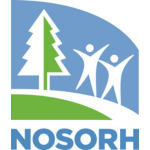The Kentucky Office of Rural Health (KORH) is helping get the word out about the Kentucky Health Benefit Exchange (KHBE), the state-run health insurance program, by helping facilitate information sessions in different regions of the state.
The sessions are geared toward health care providers, administrators, boards of directors, community agencies, coalitions, navigators, mid-level managers, front-line staff and other health care workers. “Our partners wanted more community-type events, so we thought, if they’re willing to put forth the effort, we’re going to give it a shot,” said Kayla Combs, KORH rural project manager. “The people working within the exchange have been wonderful to work with. Since they have been so willing to help we
decided to do a roadshow of sorts.”
The sessions have featured KHBE leaders and staff doing a two-hour presentation, with the first half outlining details of the exchange, followed by a question and answer session. Two sessions have been held so far. The first session, held at the UK Center of Excellence in Rural Health in Hazard, where KORH is located, had 100+ attendees, including some that joined in over iTV. The second was held in Paducah, in the western part of the state, and had around 85 attendees. KORH staff has been on hand at the
sessions to register participants and help facilitate.
Although Kentucky has been one of the most successful states in signing up people for insurance, with more than 10 percent of its estimated 640,000 uninsured signed up by the end of November (an average of 1,000 a day), Combs said that she has been surprised that many providers have been unaware of KHBE, its kynect web site, and how it works. “In smaller practices, the providers are so busy that it just crept up on them, so this educates them on the basics,” she said.
KORH Director Ernie Scott attributes the success of the sessions to “a simplified marketing strategy, as well as great partnering organizations.” KORH has sent out invitations to all area healthcare providers and rural stakeholders. The one-page flyer for the sessions is simple, with meeting information, the kynect logo at the top and a list of sponsors at the bottom. “We encourage everyone to forward it on and distribute it within their communities,” Scott said. “But, locally, we’re finding that email is not the only option.” KORH has been faxing the flyer to doctors’ offices. “Doctors in smaller practices are so busy, they otherwise miss a lot of electronic communications,” he explained.
The next session, planned for January 16th in Morehead, KY, will be the first to offer an additional evening session for the general population. “We’ve been putting out local ads, putting flyers in beauty shops, any place where folks who would benefit can see them,” Scott said. “And kynectors (Kentucky patient navigators) will be available to sign people up on the spot.”
Both Combs and Scott feel an urgency to assist and educate rural providers in getting the uninsured signed up for coverage. Scott said that a local hospital chain recently sent out notice that it will “no longer see patients for non-emergency services next year since everyone is expected to have some form of insurance, ‘consistent with the Affordable Care Act’. “If this hospital takes a stand, others will certainly follow,” he said.
